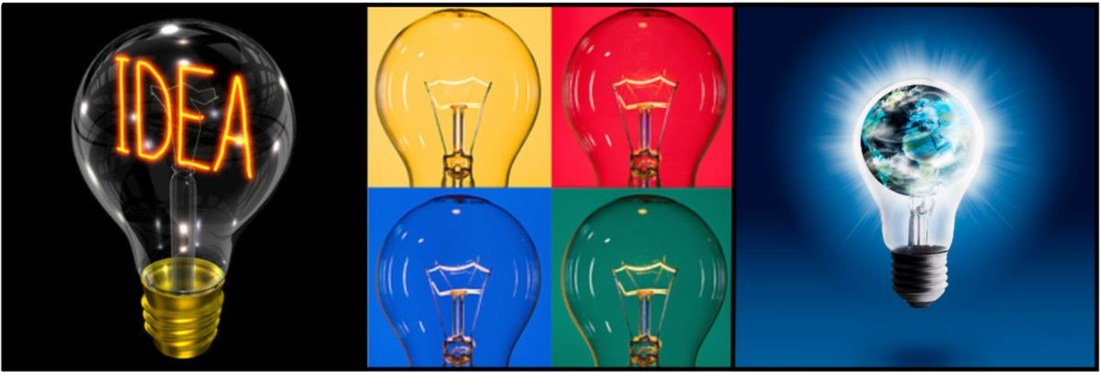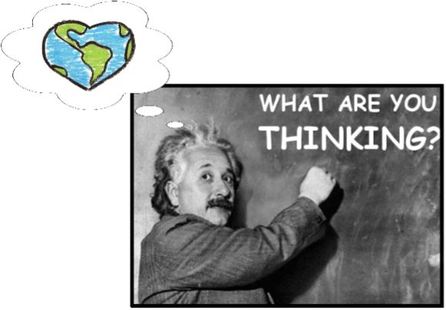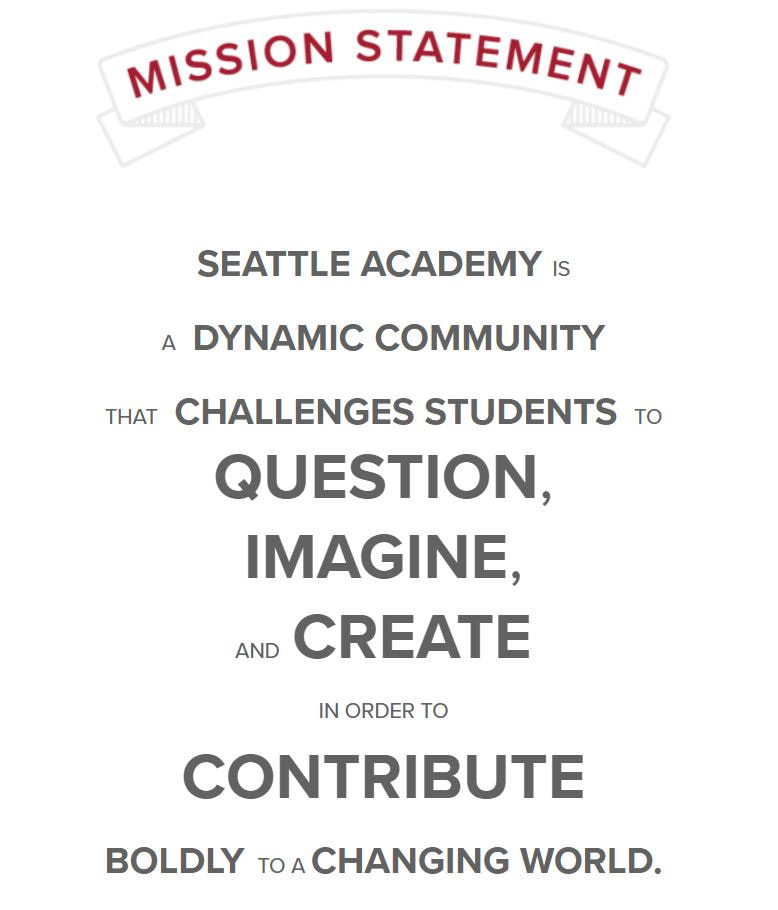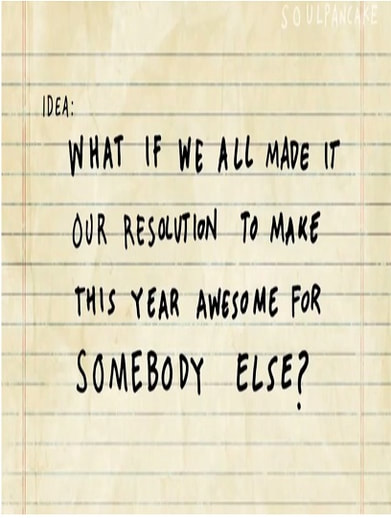
IF Project
Filled with problems large and small, the world is an imperfect place. Some problems have plagued humankind forever, while some are more recent and seem like they are a reflection of the age we live in. With so many troubles, it’s easy to sometimes get discouraged.
I know that you hear about all sorts of problems in the world. Perhaps you’ve seen problems for yourself. Maybe you’ve even felt problems that personally affect you or your community.
I’m sure you’ve wondered from time to time how some of those problems came to be and why some have lasted so long, especially with all of the smart people in the world. I’ll bet that some of you have even thought about solutions to some of the world’s problems. That’s good. Clearly, it will take a few more smart, active people, identifying problems, asking themselves how they can help, and working toward solutions to the world’s troubles. That’s where you come in.
The IF Project is a special opportunity for you to make a difference in the world. With an open heart and a fresh set of eyes, the IF Project asks you to Identify a problem and Find a solution. It is a year-long work that allows you to study and understand a problem at a deep level.
Filled with problems large and small, the world is an imperfect place. Some problems have plagued humankind forever, while some are more recent and seem like they are a reflection of the age we live in. With so many troubles, it’s easy to sometimes get discouraged.
I know that you hear about all sorts of problems in the world. Perhaps you’ve seen problems for yourself. Maybe you’ve even felt problems that personally affect you or your community.
I’m sure you’ve wondered from time to time how some of those problems came to be and why some have lasted so long, especially with all of the smart people in the world. I’ll bet that some of you have even thought about solutions to some of the world’s problems. That’s good. Clearly, it will take a few more smart, active people, identifying problems, asking themselves how they can help, and working toward solutions to the world’s troubles. That’s where you come in.
The IF Project is a special opportunity for you to make a difference in the world. With an open heart and a fresh set of eyes, the IF Project asks you to Identify a problem and Find a solution. It is a year-long work that allows you to study and understand a problem at a deep level.

In order to see how others are making a difference in the world, you will talk with an expert already working on the problem you identify. Then, I want you to innovate. Dare to dream a solution to the problem you identify. Perhaps your solution will add a new twist to work already being done. Perhaps you will come up with a new solution, one that has not yet been tried, something totally original.
As you work, it's good to remember that great ideas sometimes take awhile to take root and blossom. You will have all of 6th-Grade to test some ideas. For many of you, however, the solution you propose, may be years in the making. That’s OK.
For this project, the Innovation Factor may be both more frightful and more fun. Clearly, innovators are a special type of person, and that’s where you come into the picture. While the world has plenty of smart people, we need more geniuses. Too much to ask of a 6th-Grade student, you say? Nonsense. Let me explain why in an open letter to all geniuses.
As you work, it's good to remember that great ideas sometimes take awhile to take root and blossom. You will have all of 6th-Grade to test some ideas. For many of you, however, the solution you propose, may be years in the making. That’s OK.
For this project, the Innovation Factor may be both more frightful and more fun. Clearly, innovators are a special type of person, and that’s where you come into the picture. While the world has plenty of smart people, we need more geniuses. Too much to ask of a 6th-Grade student, you say? Nonsense. Let me explain why in an open letter to all geniuses.
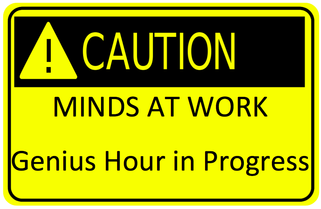
Dear Geniuses,
You are all awesome, and you are always at your most awesome when you are making someone else’s life more awesome. Because you are all awesome, this year I am going to give you some time each week to work toward making someone else’s life more awesome. The time each week that you will dedicate to that specific task I like to call the "Genius Hour.”
You are all awesome, and you are always at your most awesome when you are making someone else’s life more awesome. Because you are all awesome, this year I am going to give you some time each week to work toward making someone else’s life more awesome. The time each week that you will dedicate to that specific task I like to call the "Genius Hour.”
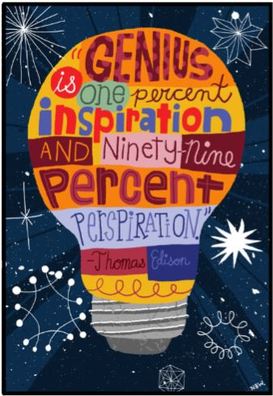
“But wait,” you say. “I am already awesome, do I have to be a genius too?” I know, that sounds like a lot more work, doesn’t it? But here’s a secret, not only do I think you are all awesome, I know you are each a genius as well. How do I know? Well, let’s talk about what a genius is.
It’s true that a genius might be someone who is really smart or really, really good at doing something. Marie Curie and Albert Einstein were genius scientists. Henry Ford was a genius industrialist. Jimi Hendrix was a genius at playing the guitar. Thomas Edison was a genius inventor. And, Michael Jordan defined basketball genius. I think that we can agree on that much.
History gives us thousands of other examples of genius, and I’m sure that you can think of many that are not listed above. Because we can’t talk about all of the examples of genius provided by history, let’s just talk about a few of those pictured. Each person pictured was successful but in wildly different fields - science, industry, innovation, athletics, and entertainment. If that is so, how does that help us define what a genius is? What does that tell us about genius? To get to that answer, rather than looking at differences, I think we need to look at traits that geniuses have in common. When we do, I think you'll discover that the the traits that geniuses share sound a lot like those of a 6th-Grade student.
It’s true that a genius might be someone who is really smart or really, really good at doing something. Marie Curie and Albert Einstein were genius scientists. Henry Ford was a genius industrialist. Jimi Hendrix was a genius at playing the guitar. Thomas Edison was a genius inventor. And, Michael Jordan defined basketball genius. I think that we can agree on that much.
History gives us thousands of other examples of genius, and I’m sure that you can think of many that are not listed above. Because we can’t talk about all of the examples of genius provided by history, let’s just talk about a few of those pictured. Each person pictured was successful but in wildly different fields - science, industry, innovation, athletics, and entertainment. If that is so, how does that help us define what a genius is? What does that tell us about genius? To get to that answer, rather than looking at differences, I think we need to look at traits that geniuses have in common. When we do, I think you'll discover that the the traits that geniuses share sound a lot like those of a 6th-Grade student.
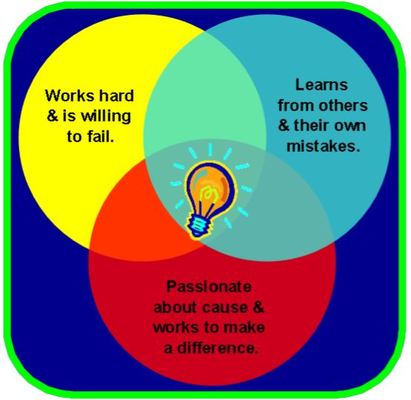
There are some traits that are shared by all geniuses. Each of the geniuses mentioned earlier worked extremely hard for their success. Along the way to success, each also failed - quite a lot, actually!
Thomas Edison, the inventor of the incandescent light bulb, tried over 6,000 different plant species before he discovered that a carbonized paper filament produced a long burning electric light. Henry Ford started the Ford Motor Company. He also pioneered the use of standardized, interchangeable parts in manufacturing and popularized the assembly line production model. Ford had his first great success in 1908 with his Model-T automobile. Since 'T' is the 19th letter in the alphabet, that means that it took Henry Ford many years and the costly production of 18 other car models - all rather expensive flops - before he reached success.
Thomas Edison, the inventor of the incandescent light bulb, tried over 6,000 different plant species before he discovered that a carbonized paper filament produced a long burning electric light. Henry Ford started the Ford Motor Company. He also pioneered the use of standardized, interchangeable parts in manufacturing and popularized the assembly line production model. Ford had his first great success in 1908 with his Model-T automobile. Since 'T' is the 19th letter in the alphabet, that means that it took Henry Ford many years and the costly production of 18 other car models - all rather expensive flops - before he reached success.
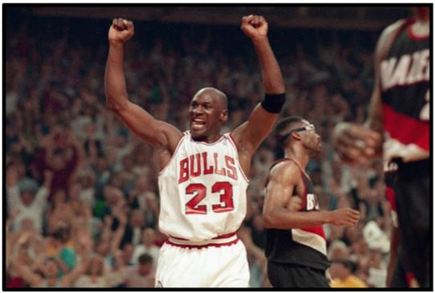
So, the first trait that geniuses share is that they are hard workers. Doesn’t that describe you? Secondly, geniuses fail a lot. True geniuses, however, are fearless in the face of failure. Hall of Fame basketball player, Michael Jordan failed more than 1 out of every 2 times he shot the basketball - and he shot the basketball a lot! He had this to say about his failures, “I can accept failure, everyone fails at something . I've missed more than 9000 shots in my career. I've lost almost 300 games. 26 times, I've been trusted to take the game winning shot and missed. I've failed over and over and over again in my life. And that is why I succeed."
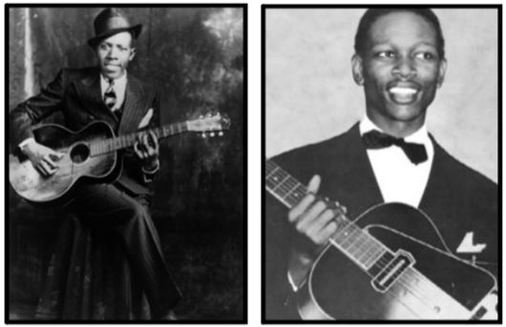
Geniuses know that failure is inevitable. By learning from their mistakes, however, geniuses turn failure into an opportunity. When asked if he ever got discouraged in his search for a workable electric light, the inventor Thomas Edison rather famously responded, “Many of life’s failures are people who did not realize how close they were to success when they gave up. I have not failed,” he said, “I've just found 10,000 ways that won't work."
In addition to learning from their own failures, geniuses also take every opportunity to learn from others. Henry Ford was not the inventor of the automobile. Thomas Edison was not the first to make a light bulb. Before Hendrix, there were pioneering, noteworthy guitarists like Robert Johnson and Charlie Christian. Geniuses are great students. Still sound like you? I think so!
In addition to learning from their own failures, geniuses also take every opportunity to learn from others. Henry Ford was not the inventor of the automobile. Thomas Edison was not the first to make a light bulb. Before Hendrix, there were pioneering, noteworthy guitarists like Robert Johnson and Charlie Christian. Geniuses are great students. Still sound like you? I think so!
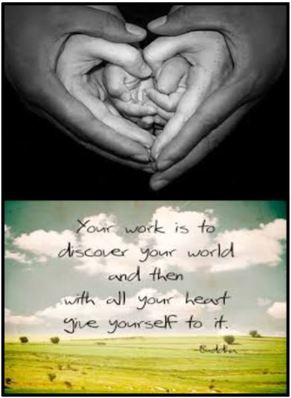
With so much failure, why do you think geniuses continue to work hard? Geniuses work hard because they are passionate about what they do. What does it mean to be passionate about something? It means you really, really, really like something, of course.
The word, passion, however, also refers to suffering. Therefore, when we agree that geniuses are passionate about something they care about or are good at, it means that they are willing to suffer to earn their success. That gets back to the notion that all geniuses work hard, sometimes for very long periods of time.
I think we are getting closer to defining what makes someone a genius. Hard work is important. The willingness to fail and persistence in the face of failure must be included in our definition as well. Geniuses are also great students. They learn from others and from their own mistakes. There is, however, one other thing that I think is the mark of a genius. Because geniuses work hard, are willing to fail, and are great students, learning from others and from their own mistakes, geniuses change the world. Jimi Hendrix changed how people played guitar. Since Hendrix plugged in, no one has approached the guitar quite the same. He defined new possibilities for the instrument. Einstein changed our understanding of the universe. By making a usable electric light bulb, Edison, quite literally, changed how we view the world.
The word, passion, however, also refers to suffering. Therefore, when we agree that geniuses are passionate about something they care about or are good at, it means that they are willing to suffer to earn their success. That gets back to the notion that all geniuses work hard, sometimes for very long periods of time.
I think we are getting closer to defining what makes someone a genius. Hard work is important. The willingness to fail and persistence in the face of failure must be included in our definition as well. Geniuses are also great students. They learn from others and from their own mistakes. There is, however, one other thing that I think is the mark of a genius. Because geniuses work hard, are willing to fail, and are great students, learning from others and from their own mistakes, geniuses change the world. Jimi Hendrix changed how people played guitar. Since Hendrix plugged in, no one has approached the guitar quite the same. He defined new possibilities for the instrument. Einstein changed our understanding of the universe. By making a usable electric light bulb, Edison, quite literally, changed how we view the world.
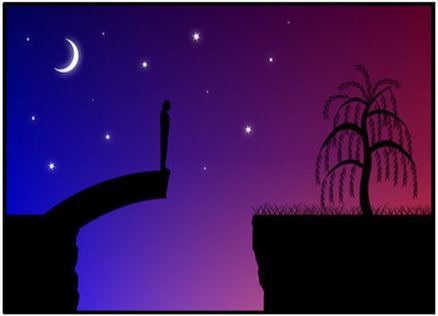
For those reasons, I think that you are all geniuses. Because you are 6th-graders, I trust you will all work hard this year. Because it is natural, I know that each of you will see challenges along the way. Some of those challenges will result in failure. Failure is OK. Failure is the point at which learning begins. We all fail from time to time. A lot of this year, therefore, will be about learning from your mistakes and learning from one another how to meet your challenges with courage. In 6th-Grade at Seattle Academy of Arts and Sciences, you are in a great place to learn from one another. When you commit yourself to working together and learning together, you quickly build the strength to overcome setbacks. With uncommon resilience and undaunted perseverance you will pave your way to success.
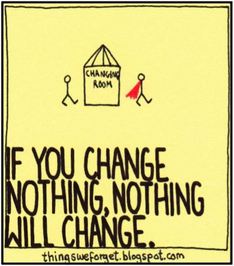
What about that last trait that geniuses share, the ability to create change? I haven’t forgotten about it. Change is difficult. It asks us to think about who we are and how we do things. It stretches us, taking us beyond our comfort zone. Change can be scary, and that’s a fact. But none of us wants to get stuck standing still forever, watching the world pass us by. Change is an important part of our life.
During your middle school years, you will change a lot. Here’s a secret I know, no one in the world is better able to adapt to change than 6th-graders. Even more, no one in the world is better suited to create change than 6th-graders, and creating change is what your IF Project is all about.
During your middle school years, you will change a lot. Here’s a secret I know, no one in the world is better able to adapt to change than 6th-graders. Even more, no one in the world is better suited to create change than 6th-graders, and creating change is what your IF Project is all about.
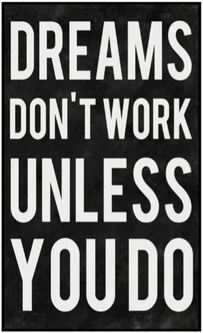
The aim of your project is to make someone else's life better. By doing that, you can change the world. You are responsible for designing your project - every aspect of it - and you will have all of your 6th-Grade year to complete your project, so dream large. Because I really believe so strongly in what each of you is capable of, I will give you class time each week to work on your IF Project.
Because you will be working on your project for a long period of time, choose something you are passionate about, something that you are willing to work hard for. Choose something that, when you are frustrated by a project challenge, you are willing to suffer for. Choose something that you are willing to be a champion for, something that you are willing to be a leader for. Some people say to me, “Your students will become the leaders of tomorrow.” Your IF Project gives you the chance to be a leader today.
Because you will be working on your project for a long period of time, choose something you are passionate about, something that you are willing to work hard for. Choose something that, when you are frustrated by a project challenge, you are willing to suffer for. Choose something that you are willing to be a champion for, something that you are willing to be a leader for. Some people say to me, “Your students will become the leaders of tomorrow.” Your IF Project gives you the chance to be a leader today.
“All the Forces in the world are not so powerful as an idea whose time has come.” Victor Hugo

Your year-long project has only a very few requirements. Those requirements include:
Identify and clearly define a problem in the world.
Research the problem and propose a solution.
Involve at least one expert from the field in which you choose to work.
Present your proposed solution at the end of the year.
Identify and clearly define a problem in the world.
Research the problem and propose a solution.
Involve at least one expert from the field in which you choose to work.
Present your proposed solution at the end of the year.
|
One good way to get started changing the world is to think about the following things:
What are you passionate about? What are you good at? How do you like to spend your time when you are not in school? What do you wonder about? If you could learn about anything in the world, what would that one thing be? |

You have great power, and I believe in you. As you begin this year, as you begin this project, know that in order to change the world, you are enough. You have influence, and your contributions make a difference. You have a gift that others need, and your actions will define your impact in this world. You are a genius. You matter.* Throughout the year, I am here to support you.
*Adapted from Angela Maiers “You Matter Manifesto”
*Adapted from Angela Maiers “You Matter Manifesto”



